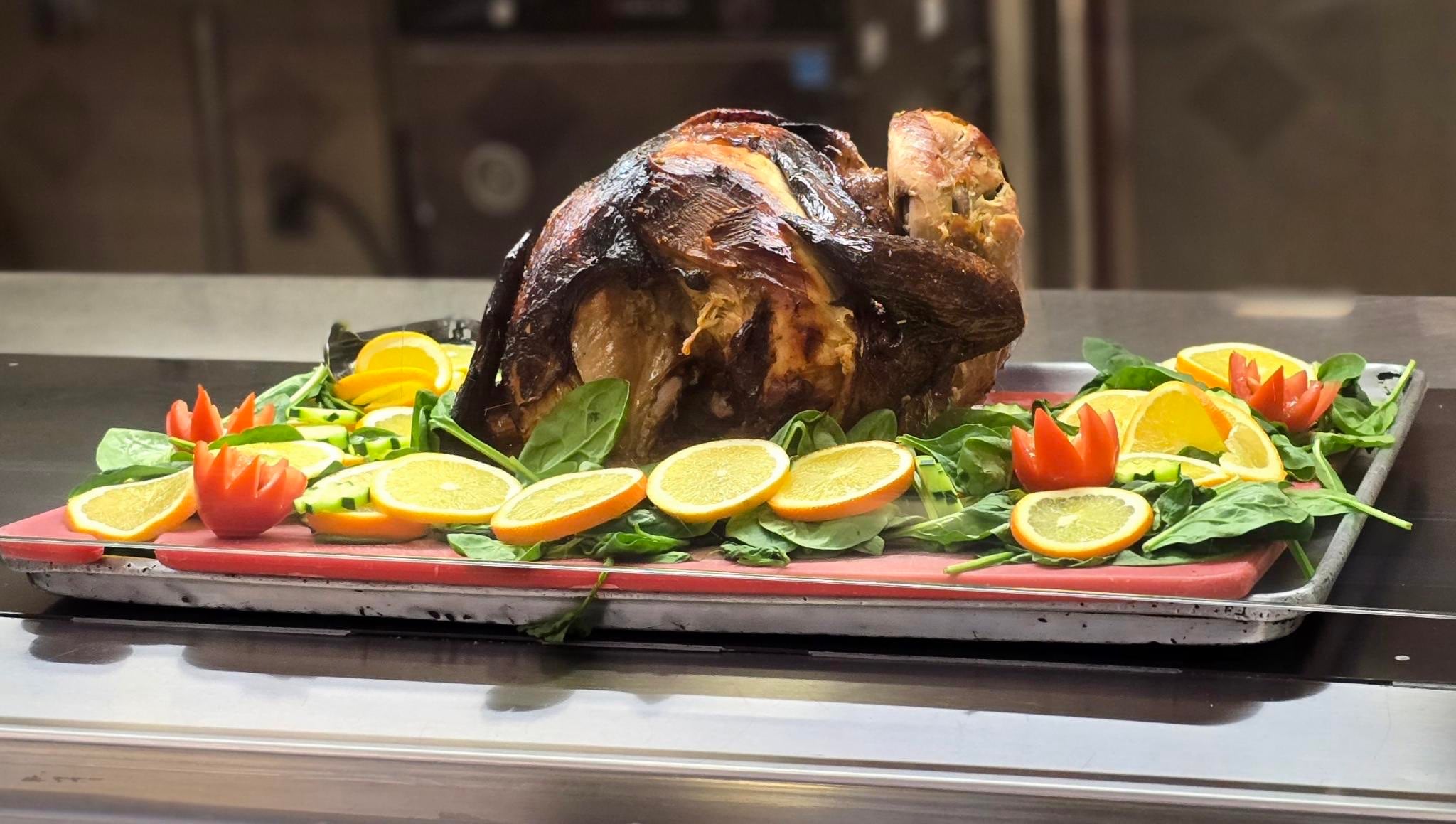Leaders at Fort Carson say they’re working to make changes following reports from soldiers about meager and unappetizing meals in the dining facilities at a Colorado Army base.
Objections about the food at Fort Carson spiked on the Yelp-style app, Hots&Cots, this fall. The app, launched by a former Army reservist last year, allows service members to anonymously review the quality of barracks and dining services.
Soldiers at Fort Carson, home to the 4th Infantry Division, posted on the app about inadequate protein, warm sushi and in one case, a meal consisting of lima beans and toast. One post said the dining facilities were overcrowded, which resulted in a 45-minute wait to get food. Other soldiers posted photos showing empty grab-and-go kiosks, which were meant to serve as supplemental food sources.
Lt. Col. Joey Payton, a spokesperson for Fort Carson, addressed the issues in a statement Wednesday.
“We recognize that we’ve had some challenges with consistency and quality of our soldiers’ dining experiences at our warrior restaurants and kiosks,” Payton said. “We’re committed to ensuring our Soldiers receive quality and healthy meals and can take full advantage of their meal benefit they are entitled to receive.”
The base directed the dining staff to make sure soldiers can select any item on the menu during the facilities’ open hours, Payton said. Fort Carson is also “reinvigorating” its dining facility council — a group of brigade-level leaders — “to ensure leader emphasis across our food service facilities.”
RELATED
As of early December, Fort Carson’s dining program was the subject of 39 posts on Hots&Cots, significantly more than the installation with the next-highest number of reviews. Many installations had received just one review.
Several posts remarked that soldiers were not getting enough nutrients to fuel their active lifestyles. In addition to the 4th Infantry Division, the base houses the 10th Airborne Special Forces Group and the World Class Athlete Program, which allows soldier-athletes to compete in the Olympics while serving in the Army.
“The amount of protein you get is terrible,” one soldier posted in late November. “The food is small, corn barely bigger than my pinky … rice overcooked, bread hard. Terrible vegetable spread.”
Another soldier posted a photo of a to-go container of pasta salad earlier in November and wrote, “Zero protein, can’t build athletes on this.”
Reviews from the past week, particularly from Thanksgiving, are positive in nature.

A post from Monday shows a plate stacked with turkey, collard greens and macaroni and cheese with the message, “Warfighter’s Thanksgiving meal was awesome! Lines were quick and the food variety/quality were both outstanding. The live music was a nice touch too. The team killed it on this one! Loved seeing so much leader engagement.”
The barracks at Fort Carson can house over 8,000 troops, many of whom are single, enlisted soldiers, according to Army data. More than 4,600 soldiers are meal-card holders and rely on getting meals from on-base dining facilities, a Fort Carson official said.
Some of the soldiers may lack the equipment necessary to prepare their own meals. The Government Accountability Office has cited the lack of food preparation areas in Army barracks as a service-wide problem.
In a report last year, the federal watchdog said many barracks provided only refrigerators and microwaves, though Defense Department standards mandate that permanent party barracks without living rooms must include kitchenettes. Some soldiers told GAO investigators that they relied on microwaveable meals or fast food, leading to health problems.
This story was produced in partnership with Military Veterans in Journalism. Please send tips to [email protected].
Nikki Wentling covers disinformation and extremism for Military Times. She’s reported on veterans and military communities for eight years and has also covered technology, politics, health care and crime. Her work has earned multiple honors from the National Coalition for Homeless Veterans, the Arkansas Associated Press Managing Editors and others.
Read the full article here








